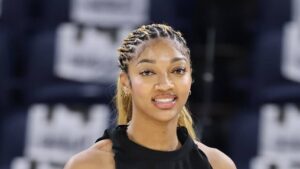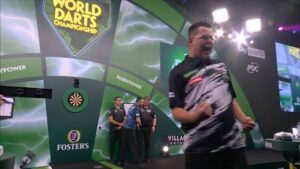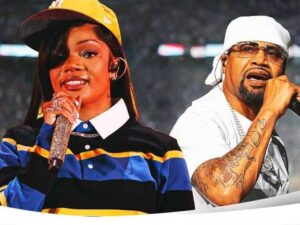WNBA: Women’s Basketball Rookie Angel Reese is having trouble living in a world with Caitlin Clark on top after….
WNBA Drama Unfolds: Rookie Angel Reese Struggles in the Spotlight Amidst Caitlin Clark’s Meteoric Rise
By Philip Smith, Sports Reporter
In what was expected to be a thrilling rookie campaign for several of college basketball’s brightest stars, the WNBA is quickly becoming the center stage for a growing narrative that stretches far beyond points, rebounds, and assists. The rivalry — or at least the growing public perception of one — between Chicago Sky forward Angel Reese and Indiana Fever guard Caitlin Clark has ignited passionate debates, highlighted social divides, and redefined how fans consume women’s professional basketball.
As Caitlin Clark rides a wave of attention, jersey sales, and social media adoration, Angel Reese — one of college basketball’s most charismatic and polarizing figures — is finding it difficult to adapt to the realities of a professional landscape dominated by the very player she once stared down in the NCAA championship.
From College Queens to WNBA Rookies
Both Clark and Reese entered the WNBA with massive fanfare. Clark, known for her Steph Curry-like range and calm demeanor, was the No. 1 overall pick by the Indiana Fever. Reese, the self-proclaimed “Bayou Barbie,” brought her trademark swagger and elite rebounding to the Chicago Sky after being selected seventh overall.
At LSU, Reese was celebrated for her dominant inside game and unapologetic personality. She led the Tigers to a national championship in 2023, defeating Iowa and Clark in a highly charged matchup that ended with Reese taunting Clark by waving her hand in front of her face — a “you can’t see me” gesture that went viral.
The postgame moment drew both praise and criticism, with some calling it brash and others applauding it as confident and assertive. That moment symbolized a shift in women’s basketball culture: it was no longer just about playing well — it was about owning the moment, commanding the narrative, and building a brand.
Now, the tables have turned.
Caitlin Clark: The WNBA’s Golden Girl
Caitlin Clark’s transition to the WNBA has been marked by historic ticket sales, sell-out crowds, and an explosion of media coverage rarely seen in women’s professional sports. While her team has struggled early, Clark’s presence alone has transformed the Fever into must-watch television. Her jersey is the league’s top seller, and ESPN’s viewership has hit all-time highs when she plays.
Clark’s success hasn’t been without hardship — her team is young, and she’s adjusting to the physicality of the pro game. But her impact is undeniable. She is being hailed as the future of women’s basketball, and many believe the league is now building around her.
Meanwhile, Reese is experiencing a far different narrative.
A Difficult Adjustment for Angel Reese
Despite her talent, Angel Reese’s early WNBA journey has been marred by inconsistent play, critical headlines, and the emotional toll of being constantly compared to Clark.
Statistically, Reese has shown promise. She remains one of the best young rebounders in the game and has already notched multiple double-doubles. But her offensive game is still developing, and critics have been quick to point out her shooting inefficiency and defensive lapses.
However, what’s been most notable is the emotional wear and tear. Reese has frequently found herself at the center of media firestorms, often fueled by social media clips taken out of context or comparisons that frame her as “jealous” or “unable to cope” with Clark’s spotlight.
“She’s having trouble living in a world where Caitlin Clark is on top,” one viral headline declared this week, sparking renewed debates online.
But is it jealousy — or something deeper?
Race, Image, and Media Bias
Many fans and analysts argue that the Reese-Clark dichotomy is more than just sports rivalry — it’s a reflection of how race and image shape public perception. While Clark is portrayed as the humble, hardworking face of the league, Reese is often branded as “emotional,” “divisive,” or “too confident.”
“The way Angel is covered compared to Caitlin shows a real bias in the media,” said one WNBA executive anonymously. “Both are competitors, both are incredible athletes, but they are treated very differently.”
Reese herself has hinted at the pressure and pain she feels. In a recent interview, she admitted she has struggled with the negativity and at times feels “unfairly scrutinized.”
“I’ve worked hard to get here, just like everybody else,” she said. “I love this game. But sometimes it feels like I have to prove myself over and over — not just on the court, but to the world.”
She’s also made it clear that while she respects Clark as a competitor, the constant comparisons are exhausting and detract from the broader story of the WNBA’s growth.
League Growing Pains
For the WNBA, this moment is both a blessing and a challenge. The increased attention is bringing in new fans, merchandise sales, and TV ratings. But it’s also fueling intense discourse — and sometimes toxic fandom — as supporters of each player engage in online feuds and hot takes.
“There’s a danger in turning this into a two-woman show,” said ESPN’s Monica McNutt. “There’s so much talent in the league — from Aliyah Boston to A’ja Wilson to Arike Ogunbowale. Angel and Caitlin are part of a much bigger story.”
Still, the spotlight shows no signs of dimming. With each game, each quote, each viral tweet, the Reese-Clark narrative continues to evolve.
What’s Next for Angel Reese?
Angel Reese has a decision to make: Will she continue to push against the narrative or rise above it? Her supporters believe she has the mental toughness to navigate the pressure and eventually establish herself as a star in her own right — not just as Clark’s rival, but as a force in her own lane.
“Angel’s story isn’t over,” said Chicago Sky head coach Teresa Weatherspoon. “She’s a fighter. The journey is just beginning, and I wouldn’t bet against her.”
The WNBA season is long, and if history tells us anything, it’s that Reese thrives under pressure. The next chapter of her career will depend not just on how she plays — but how she handles the weight of expectations, comparisons, and the growing spotlight of being a woman in pro sports.
For now, the world watches — and debates — every move. But in the chaos, one thing is clear: Angel Reese, like Caitlin Clark, is changing the game, whether she wants to or not.






